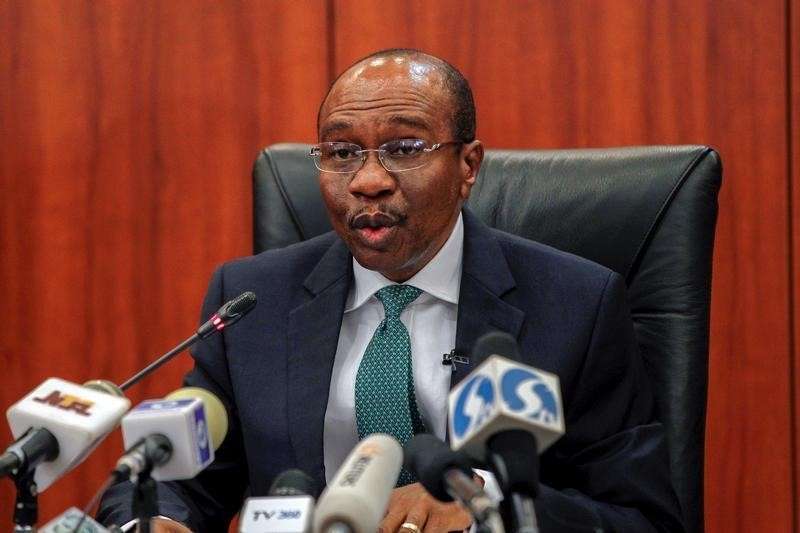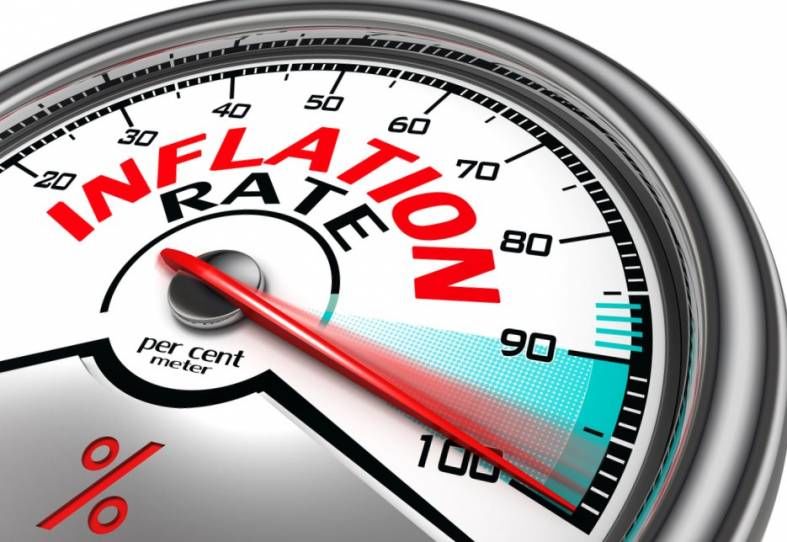Economy
After Recession: A Need for Policy Change?

We expect the Monetary Policy Committee (MPC) of the Central Bank of Nigeria (CBN) to hold rates at the current levels, while the fiscal authority continues to implement policy measures to sustain growth. The MPC is scheduled to meet on September 25 and 26, 2017.
The current tight monetary policy is justified in order to curb the high inflation rate and maintain stability in the foreign exchange (FX) market.
At its July 2017 meeting, the MPC maintained the Monetary Policy Rate (MPR) at 14%, with the asymmetric corridor at +200 and -500 basis points; Cash Reserve Requirement (CRR) and Liquidity Ratio (LR) at 22.50% and 30% respectively.
In the international scene, the International Monetary Fund (IMF) in its World Economic Outlook, July 2017 edition, forecasts global economic growth at 3.5% in 2017. The IMF indicated that the risks around the global growth forecast are from monetary policy normalisation in some advanced economies, notably the U.S, anti-globalisation stance, and geopolitical tensions.
The Federal Open Market Committee (FOMC) of the United States (U.S) Federal Reserve (The Fed) maintained the Federal Funds Rate (The Fed Fund Rate) at its September 2017 meeting but signalled unwinding of balance sheet as from October 2017.
At the domestic level, the Q2, 2017 figures from the National Bureau of Statistics (NBS) shows that the GDP in Nigeria recorded a growth rate of 0.55%. The recovery in crude oil production and price and the introduction of the Investors’ and Exporters’ Foreign Exchange Window (I&E Window), increased the supply of foreign exchange, and helped to pull the economy out of recession.
Meanwhile, the accretion to the external reserves continued after the MPC meeting in July 2017. The 30-Day moving average external reserves increased by 3.21% to $31.83bn as at 31st August
2017, from $30.84bn as at 31st July 2017.
However, the value of the Naira recorded a mixed performance but has shown relative stability since the last MPC meeting in July 2017. The value of the Naira depreciated in the official market, while it closed unchanged in the parallel market. The premium between the inter-bank and parallel markets averaged about N61 between the last MPC meeting in July 2017 and September 15, 2017 from an average of N66 during the period between the MPC Meetings of May and July 2017.
The monetary aggregates as at July 2017 show that the annualised growth rate in money supply is below the target that the CBN sets for the year 2017. The broad money supply (M2) decreased by 5.08% to N22.20trn in July 2017, from N23.39trn in December 2016. This is lower than the CBN’s growth rate target of 10.29% for the year 2017.
The CBN has maintained tight monetary policy to curb high inflation rate and ensure FX stability.
Our forecast shows that the inflation rate will remain in the range of 15.55%-16.20% between September 2017 and December 2017.
This is based on the assumption that the Federal Government of Nigeria (FGN) does not increase the price of Premium Motor Spirit (PMS) and Electricity Tariff. The forecast range is higher than the CBN’s target of 6%-9% and the growth retarding inflation benchmark of 12.5%.
The yields on NTBs decreased in August 2017, compared with the yields in July 2017. At the NTBs auction, average yield on the 91-day, 182-day and 364-day NTB dropped. The yields on the FGN Bonds that we monitored closed higher in August 2017 when compared with the yields in the preceding month. We expect the yields on the fixed income securities to drop.
This is because of the stability in the FX market, plans of the FGN to refinance part of the local debt with foreign debt and the positive GDP growth rate expected going forward.
Looking at the developments both in the domestic and international markets, a hold in rates at this meeting will be appropriate in order to sustain the current growth rate in the economy. However, the MPC may adjust the asymmetric corridor around the MPR to signify easing.
Meanwhile, fiscal measures in the forms of tax relief and tariff adjustments are required to boost economic activities.
Economy
Moniepoint Research Shows Diminishing Role of Cash in Nightlife Payments

By Modupe Gbadeyanka
A new report released by Africa’s leading all-in-one financial ecosystem, Moniepoint Incorporated, has revealed that the use of cash for financial transactions is gradually dying due to security concerns.
The study, which looked into transaction data of over 27,000 clubs, bars, and lounges, showed that bank transfers dominated, followed closely by card payments, with cash actively discouraged. It was observed that transfers outpace card payments by nearly 2 million transactions during peak nighttime hours across its network.
In the research titled The Business of Community Nightlife in Nigeria, findings provided a rare, data-driven look into the country’s informal night economy.
While high-end Detty December venues grabbed headlines with daily revenues of N360 million and table prices reaching N1.2 million, Moniepoint’s study shifted the spotlight to the “community nightlife” where roadside bars, suya spots, and neighbourhood joints form the bedrock of social life for millions of Nigerians.
One of the study’s most operationally significant findings concerns the timing of spending. Nightlife in Nigeria runs late, but economically, the night is decided early.
Transaction volumes begin climbing sharply from 8 pm, peak before midnight, and then decline steadily even as venues remain full. By the time the night is at its longest, purchasing activity has already wound down.
However, for bar operators, this has clear practical implications – the most critical hours for staffing, stocking, vendor payment and cash flow management are the earliest hours of the day between midnight and 6 am.
The report further underscores the sector’s role in employment, noting that local bars typically expand their workforce by 30-50 per cent on peak nights. Conservative estimates suggest that at least 54,000 people are engaged in nightlife labour every night across Nigeria.
It was also observed that the most common transaction narrations from the data sourced – “food”, “pay”, “sent”, “pos”, “cash” – reflect the full breadth of nightlife spending: street food, club entry, lounge tabs, transport, and afterparties. Digital payments have gained huge traction in Nigeria’s social space.
While alcohol remains a key revenue driver, the data shows that food is the quiet stabiliser of Nigeria’s night economy, particularly in local and informal settings. In several neighbourhood venues, bottled water and meals outsell beer and spirits, especially early in the evening.
Lagos leads in sheer concentration of nightlife establishments, with 4,856 bars, clubs, and lounges on the Moniepoint network. FCT follows with 2,515, then Rivers (2,362), Delta (1,930), and Edo (1,574).
Katsina leads the country in nighttime food truck payment value, with vendors pulling in over N130 million in the last 12 months. Kwara State leads in transaction count. Nigeria’s nightlife economy is distributed, not overly elitist.
On the lending side, the report noted that a significant share of loan requests from bar and lounge operators is directed toward renovations, furniture, lighting, and sound systems, showing that investments are intended to attract and retain customers in a competitive sector where ambience plays a decisive role.
Commenting on the report, the chief executive of Moniepoint, Mr Tosin Eniolorunda, said, “Nigeria’s local bars and night-time operators are not peripheral to the economy; they are a critical part of its architecture. We see a substantial and sustained economic sector that employs hundreds of thousands of Nigerians every night and deserves the same attention we give to agriculture, healthcare, and retail.
“Our goal is to make sure every one of those businesses has the tools to grow. From giving credit to finance renovations and sound systems to providing same-day settlement that allows vendors to restock and with tools like Moniebook that power inventory management and reconciliation, Moniepoint is ensuring that this vital artery of the nation’s economy remains viable and empowering.”
Economy
CBN Reduces Interest Rate by 50 Basis Points to 26.50%

By Adedapo Adesanya
The Central Bank of Nigeria (CBN) has cut the interest rate by 50 basis points to 26.50 per cent from 27 per cent.
Nigeria’s apex bank announced this during its two-day 304th Monetary Policy Committee (MPC) meeting, which concluded on Tuesday in Abuja.
This comes after the country’s interest rate cooled in January to 15.10 per cent from 15.15 per cent, according to the National Bureau of Statistics (NBS), strengthening the case for a reduction.
The CBN Governor, Mr Yemi Cardoso, said all members of the MPC unanimously agreed upon the decision.
“The committee decided to reduce the monetary policy rate by 50 basis points to 26.50 per cent,” he said.
Mr Cardoso stated that the liquidity ratio was maintained at 30 per cent, and the standing facilities corridor was adjusted to +50 to -450 basis points around the monetary policy rate.
He said the committee retained the Cash Reserve Ratio (CRR) at 45 per cent for commercial banks and 16 per cent for merchant banks, while the 75 per cent CRR on non-TSA public sector deposits was equally maintained.
The CBN uses the MPR, which works as the benchmark interest rate, to manage inflation, macroeconomic stability, and liquidity.
Last November, the MPC retained the Monetary Policy Rate (MPR) at 27.00 per cent. The last time the apex bank cut interest rates was in September last year, to 27 per cent from 27.50 per cent after a series of easing in inflation.
Market analysts had argued for higher interest cuts due to results seen in the CBN’s inflation targeting framework. Meanwhile, some say the 50 basis points reduction will offer a temporary reprieve as inflation heads for a single-digit target in the coming months.
Economy
Grey to Cut Cross-Border Payment Costs with New USD Offering

By Adedapo Adesanya
A cross-border payments solutions company, Grey has expanded its business banking platform to include US Dollar corporate accounts, bulk international payments, and USDC stablecoin support, all integrated into a single system.
The company is positioning itself as a low-cost, faster alternative to traditional international banking, particularly for businesses in emerging markets as it enables companies to open US Dollar accounts, receive global payments, and send payouts to 170+ countries, including bulk transfers, within minutes.
Grey aims to solve common cross-border payment challenges, particularly the high transfer costs that often range between 6 and 7 per cent of transaction value, prolonged settlement cycles that can stretch across several days, and the limited access many businesses face when trying to open and operate foreign currency accounts. In addition, companies frequently contend with hidden intermediary fees and poor foreign exchange transparency, both of which undermine cost predictability and effective cash flow management.
By integrating USD business accounts and USDC stablecoin functionality into its platform, Grey enhances its value proposition around faster settlement, clearer pricing structures, improved cost efficiency, and broader global accessibility. The expanded capabilities enable businesses to manage international transactions with greater speed, transparency, and operational control.
“Businesses may operate without borders today, but access to reliable global banking remains uneven, particularly for companies in high-growth markets,” said Mr Idorenyin Obong, Co-founder and Chief Executive Officer of Grey. “We’re closing that gap and enabling businesses to move money faster, with greater transparency and control, wherever their clients or partners are based.”
“When payments are delayed, or costs are unpredictable, growth stalls,” added Mr Joseph Femi Aghedo, Chief Operating Officer and Co-founder of Grey. “Grey eliminates those friction points, giving businesses a faster, simpler way to manage payroll, supplier payments, and partner payouts across borders. Adding USD and stablecoin capabilities makes these benefits accessible to even more customers.”
Established in Africa in 2020, Grey has a presence in key markets, including the United States, the United Kingdom, and Europe, and has recently expanded its services and operations into Latin America and Southeast Asia.
Since its inception, the company has consistently enhanced its services to empower digital nomads worldwide, regardless of location. Grey’s offerings include multi-currency accounts, low-cost international money transfers, a virtual USD card, expense management tools, and robust security measures.
-

 Feature/OPED6 years ago
Feature/OPED6 years agoDavos was Different this year
-
Travel/Tourism10 years ago
Lagos Seals Western Lodge Hotel In Ikorodu
-

 Showbiz3 years ago
Showbiz3 years agoEstranged Lover Releases Videos of Empress Njamah Bathing
-

 Banking8 years ago
Banking8 years agoSort Codes of GTBank Branches in Nigeria
-

 Economy3 years ago
Economy3 years agoSubsidy Removal: CNG at N130 Per Litre Cheaper Than Petrol—IPMAN
-

 Banking3 years ago
Banking3 years agoSort Codes of UBA Branches in Nigeria
-

 Banking3 years ago
Banking3 years agoFirst Bank Announces Planned Downtime
-

 Sports3 years ago
Sports3 years agoHighest Paid Nigerian Footballer – How Much Do Nigerian Footballers Earn















